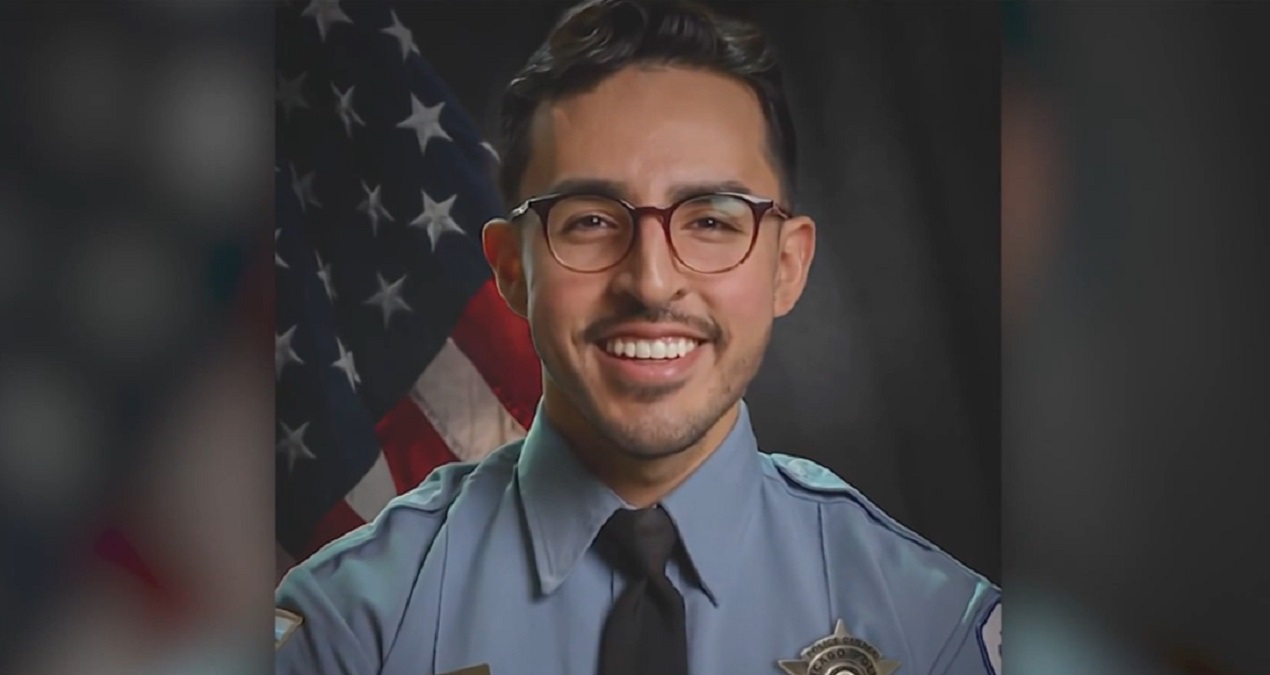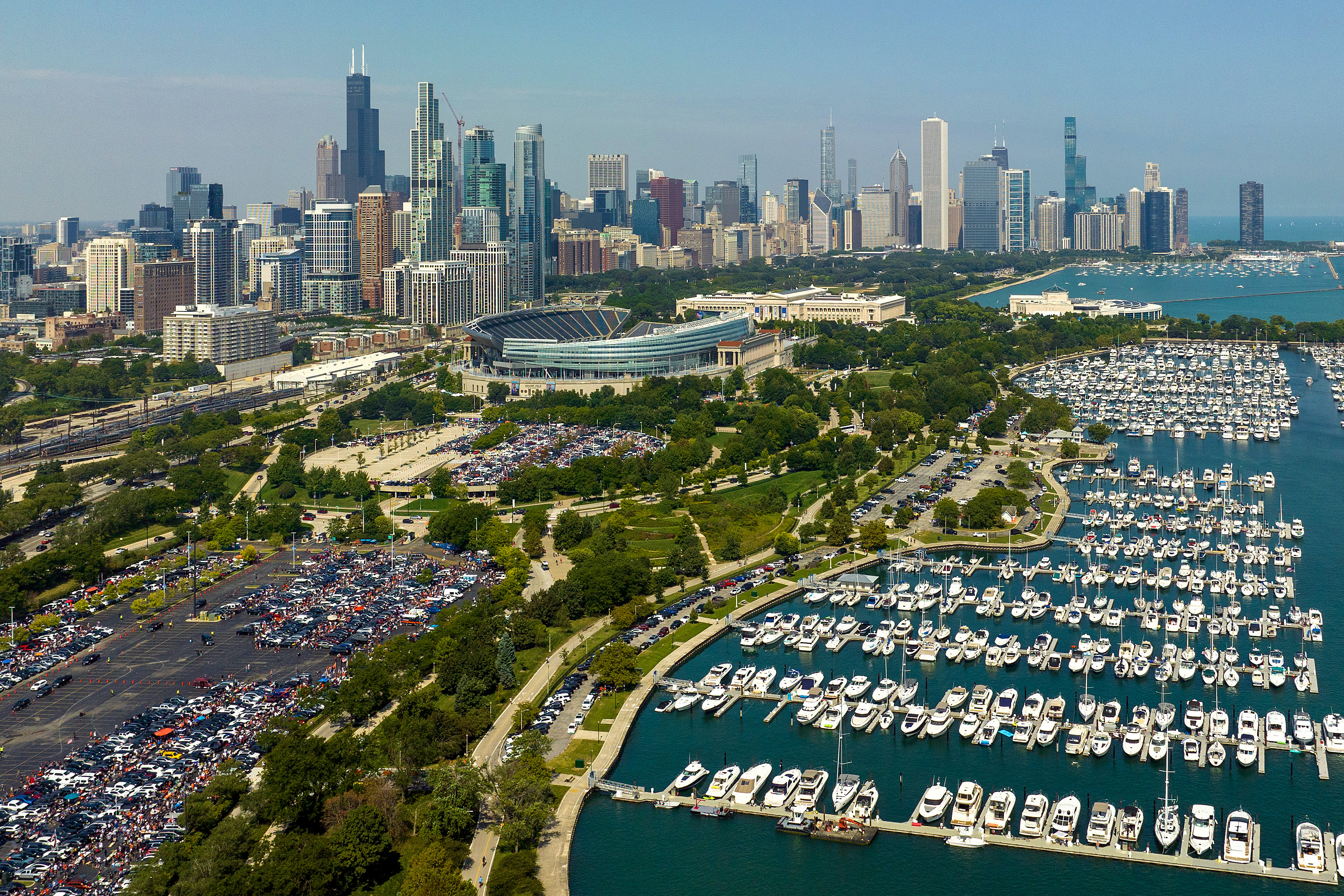Chicago's top doctor said rising COVID metrics have her "worried," but as for whether or not they signal the beginning of a third surge in the city, there's one thing she's watching for.
"I don't know fully what's going to happen here," Chicago Department of Public Health Commissioner Dr. Allison Arwady said. "I do know that we are pushing vaccine absolutely as quickly as we can, ramping up our monitoring for the variants we are seeing...and continuing to ask people to do what has gotten us this far. If we see a big increase in cases not accompanied by an increase in hospitalizations or deaths I don't worry about that as much. But if we start to see it impacting in serious ways, you know, and then the big question is what does this mean for reopening?"
Arwady said health officials tracked indicators in the lead-up to the previous two surges to find ways to predict another potential increase.
"I am concerned and I mean I hope everybody is concerned when they look at this data and we are seeing increases," she said. "Our epidemiologist did a lot of looking at data here in Chicago, across the country to see what predicted the surge, the second surge, and we track these eight indicators and before that we highlight here are the ones that were shown to be particularly predictive, and so we have to take seriously the risk - not just the numbers, but that rate of increase like we did and, you know, moving from low to moderate, those are things that were predictive of some potential trouble."
Feeling out of the loop? We'll catch you up on the Chicago news you need to know. Sign up for the weekly Chicago Catch-Up newsletter here.
COVID metrics in both Chicago and Illinois are beginning to show "signs of concern" as case numbers and positivity rates start to increase.
Arwady said the current trends in city metrics, many of which have risen in recent weeks particularly in young adult populations, are similar to the trends seen ahead of the fall surge that led to coronavirus mitigations across the city and state.
"Unfortunately, these sorts of increases are just what we were seeing in October as we were starting to see the beginnings of what became our huge surge," Arwady said during a coronavirus update Tuesday. "It was really the same case rates and younger adults that started this."
Local
Arwady noted that emerging variants of the coronavirus, believed to be more contagious, are also still being reported across the city.
"We're seeing COVID variants spread in Chicago, and we are not testing every person who gets COVID for those variants, but we absolutely are seeing again that B.117 variant that first emerged in the U.K., that they're seeing a lot of in Michigan," she said. "We are also seeing more cases of it here in Chicago and we have seen some spread."
The city's positivity rate sat at 3.2% Tuesday, remaining in the low-risk category, but marking an increase from a recent low of 2.7%, Arwady said.
"Seeing that go up about a half a percentage point over the last, you know, week and a half to two weeks is not progress," she said during an earlier Facebook Live Tuesday.
Even more concerning, she said, is that case counts in the city are also starting to rise, with a current average of about 350 cases per day, compared to 285 one week earlier.
"Sometimes people ask, isn't it just that you're doing more testing? No, because if it were just testing, we would see testing up 23% and cases up 23%. This is a true increase," Arwady said.
Arwady said that while the current case level remains in a moderate risk category, the rate of increase actually puts the city under a higher risk.
"At this point, the cases are in a high-risk state because of the increase. Our positivity does remain in the lower-risk state, but heading the wrong way and then our emergency department visits, which had been in a lower-risk state are also back in a moderate-risk state because, consistent with the increase in cases, we've also seen some increase in people present with COVID-like illness to the emergency department," she said. "Our ICU numbers and our hospital numbers at this point do continue to look good. But I will tell you, we are worried about this."
She noted that the increase, however, isn't unique to Chicago.
"These increases we're seeing are not just in Chicago," Arwady said. "They're actually worse in suburban Cook and the northeast, you know, the state overall. Not an emergency yet, but these are... this is why we monitor these things and when we see signs of concern like this, it's a moment to watch and see what happens."
Her comments were echoed in part by Illinois Department of Public Health Director Dr. Ngozi Ezike, who said Tuesday that the state is "seeing some concerning plateaus and even increases in hospitalizations and cases."
“Even as we’re getting more and more vaccine doses, we cannot let our guard down, especially with these virulent new strains circulating,” Ezike said in a statement. “We’ve come so far and are so close to a more normal time, but we’re already seeing some concerning plateaus and even increases in hospitalizations and cases. We’re not out of the woods yet so continue to wear your masks, avoid large crowds, and keep six feet of distance.”
Health officials in Illinois on Wednesday reported 2,793 new coronavirus cases and 20 additional deaths, along with more than 107,000 vaccinations in the past 24 hours.
"I've been to this movie before and seen, you know, the rising positivity rates," Gov. J.B. Pritzker said Wednesday. "And I'm concerned about it and I've been saying all along, even as we have addressed the mitigations and tried to lower mitigations here or there, I've said we got to be careful about the variants. And I am concerned, I must tell you, you know, as I see numbers go up, is that the variants or is it a blip in the data? You know, what is it exactly? So we'll keep watching very closely, but I can tell you there is more activity going on and I think people maybe are being a little less careful, and I want to remind everybody please keep your distance, please continue to wear your mask, please be respectful of others."
Arwady said that while the city continues to make progress in vaccinating residents, she's particularly concerned about the short-term impacts of a surge, but remains optimistic for longer-term projections.
"I remain really confident that this summer, assuming we continue to see really good vaccine demand and really good uptake as vaccine supply increases, we'll be in good shape this summer, but I am really worried about this next sort of four to eight weeks," she said.



